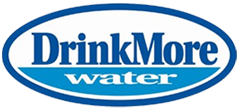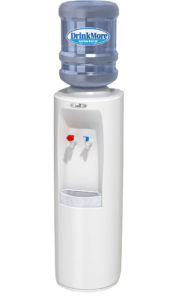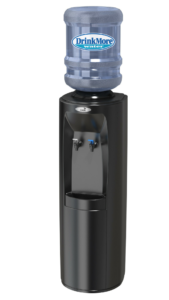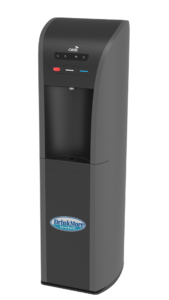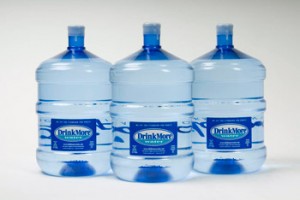
Since our bodies are made up of 70% water and all our internal systems depend on hydration to function at their best, drinking clean, healthy water is the best possible thing you can do for your health.
At DrinkMore Water, we’re dedicated to providing the highest quality purified water, ensuring that every drop is free from contaminants but remains rich in essential nutrients.
We have a proprietary and rigorous 12-step purification process ensuring that the water we deliver is the purest and cleanest possible.
What Is Distilled Water?
Distilled water is water that has undergone a purification process to remove impurities and contaminants.
The way it’s done is simple: The water is boiled until it turns into steam, and the steam is cooled back down into liquid form in a different container. This process leaves behind all the contaminants in the first container like salts, minerals, and other impurities.
The result is pure water without all the stuff you don’t want.
What Is Purified Water?
Purified water is water that has been filtered and treated to remove impurities and contaminants, making it safe and clean for consumption. We use a rigorous 12-step purification process to ensure the highest quality water. Our process begins with carbon filtration to remove chlorine and other organic compounds, followed by microfiltration to eliminate particles.
Next, reverse osmosis removes dissolved solids, and deionization further purifies the water. Ultraviolet light is used to kill any remaining bacteria, while ozonation ensures the water is free of microorganisms.
The water then goes through a sub-micron filtration, is stored in stainless steel tanks, and is passed through another ultraviolet light treatment before being polished with a final carbon filtration. This meticulous process guarantees that our purified water is exceptionally clean and safe for all types of uses.
Purified vs. Filtered Water: What’s the Difference?
Filtered water and purified water aren’t quite the same when it comes to cleanliness. Filtered water gets rid of some impurities, but purified water goes through a much more thorough process to remove almost all contaminants, including chemicals, bacteria, and dissolved solids.
Drinking purified water means you’re getting the cleanest, safest water, free from stuff that filtered water might still have. Choosing purified water over filtered can give you peace of mind and better health benefits because it’s just that much cleaner.
Is Purified Water Better Than Distilled Water?
Purified water is a better and healthier choice than distilled water because it keeps the essential electrolytes and minerals your body needs. Distilled water strips away all these important elements during the distillation process, leaving it with no nutrients.
Purified water goes through a thorough filtration process that removes contaminants but keeps the good stuff intact. So, when you drink purified water, you get clean, safe water without losing those essential nutrients.
The Best Choice in Water Delivery Service in DC, MD & VA
Choosing DrinkMore Water for your water delivery services ensures you receive high-quality, BPA-free water from a local, American-owned company known for its exceptional community service.
With rush delivery at no extra charge, same-day service, and real, caring locals answering your calls, DrinkMore Water provides an easy, friendly, and reliable experience. Enjoy peace of mind with every sip — trust us to supply you with the cleanest, safest water possible.
Schedule your delivery of purified drinking water from DrinkMore Water today.
Frequently Asked Questions
Yes, distilled water is safe to drink. However, because the distillation process removes all minerals and electrolytes, it might not be the best choice for regular consumption as it lacks essential nutrients that your body needs.
Not all bottled water is distilled. Bottled water can come from various sources and may be purified using different methods, such as reverse osmosis, distillation, or filtration. Check the label to see the specific purification process used.
